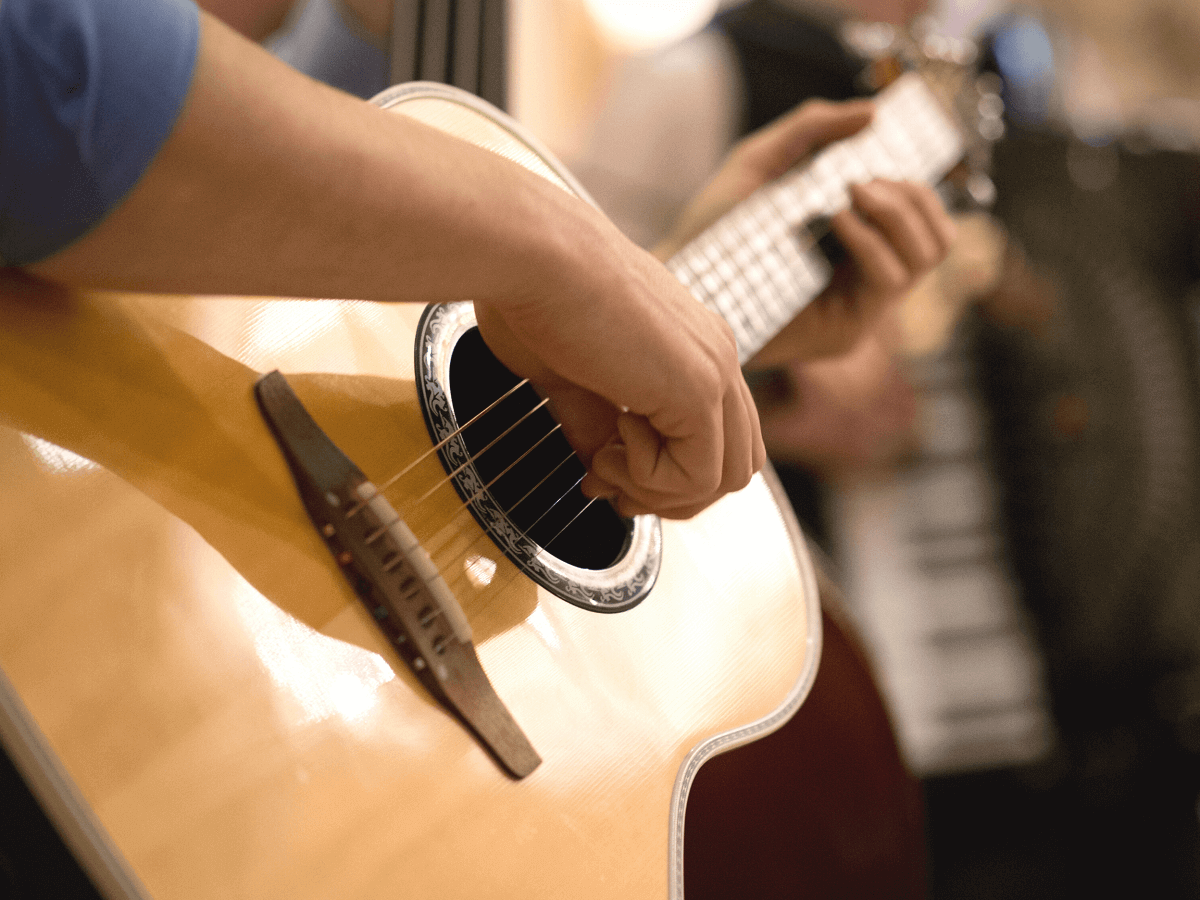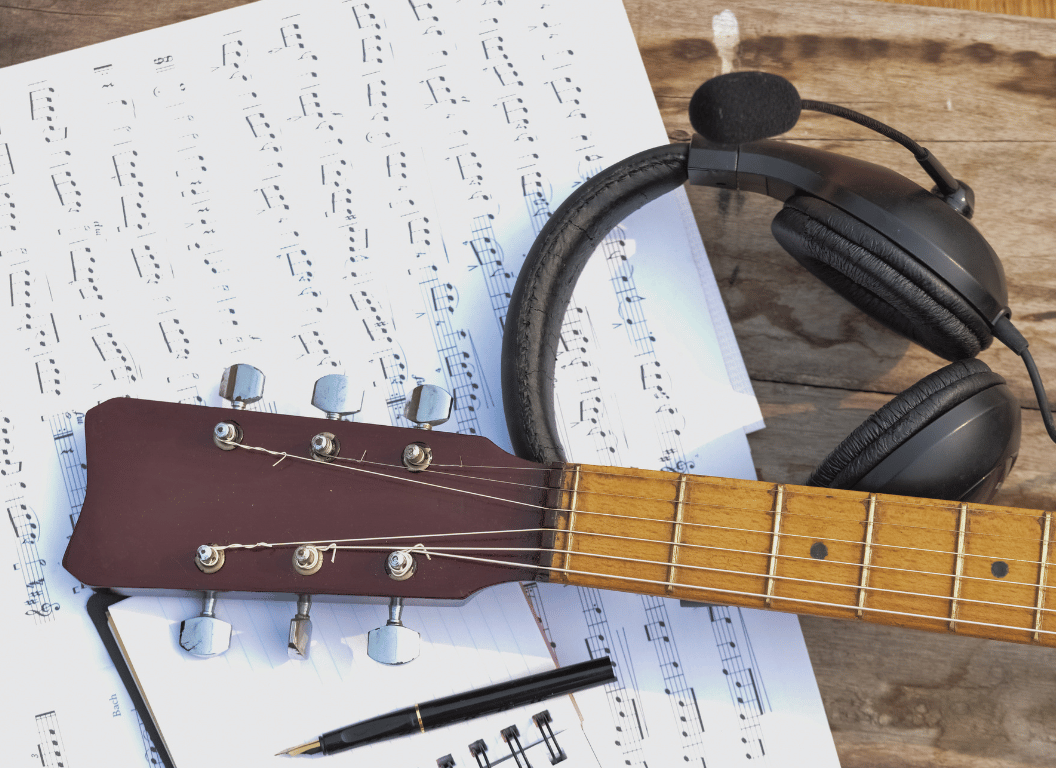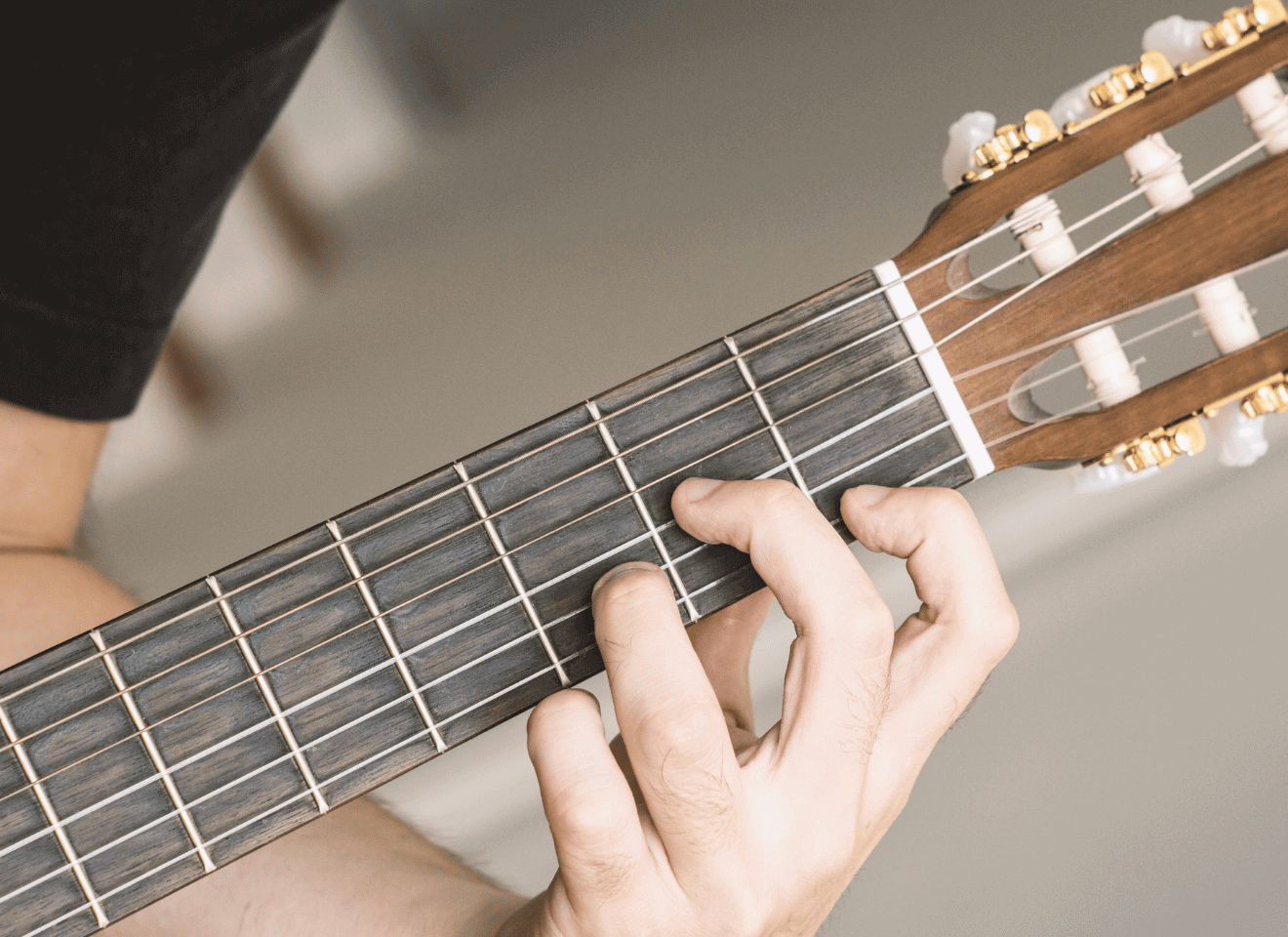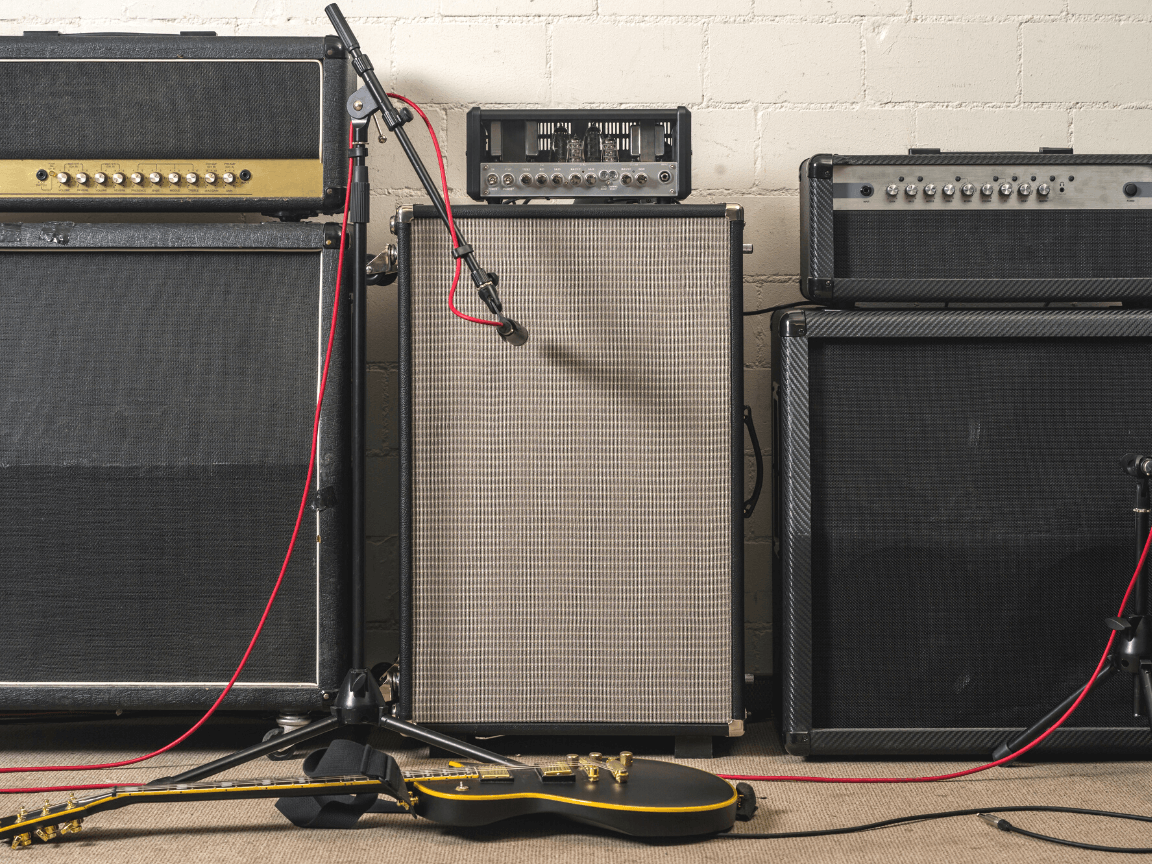Learning the guitar is a great way to enhance your creativity and boost your confidence.
But, in order to become an accomplished guitarist, there are certain attributes you need to possess.
Whether you’re teaching yourself or taking lessons from an experienced player, having the right traits and attitude can make all the difference.
In this article, we’ll discuss some essential attributes that will help you master the instrument and take your playing to the next level.
So, without further ado, let’s dive into it!
Table of Contents
- 1. Knowing the notes on the fretboard
- 2. Able to focus on the task at hand
- 3. Having patience and determination when playing
- 4. Having a good developed ear
- 5. Knowing about music theory
- 6. Willingness to practice
- 7. Know how to play barre chords
- 8. Having good timing sense
- 9. Knowing how to improvise
- 10. Know how to play with dynamics
- 11. Can play with other muscians
- 12. Have curiosty and open mind
- 13. Having good posture
- 14. Knowing as many techniques as possible
- 15. Be organized and consistent
- Conclusion
1. Knowing the notes on the fretboard
One of the most important aspects of guitar playing is knowing and memorizing the notes on the fretboard.
This will help you identify intervals and chords more quickly, allowing you to progress faster and become a better sight-reading musician.
And, by understanding the notes on each string and fret, you’ll be able to learn and perform songs with greater ease.

This was something that I didn’t really understand when I first started playing guitar, but it’s definitely a vital skill to have.
It would have been simpler if I had started working on it earlier.
For example, finding equal notes on different strings or locating the notes of a chord will be much easier if you know the notes on your fretboard.
Which for solos and improvisations, is a must and will make you sound much better and more professional.
2. Able to focus on the task at hand
Whether you’re practicing a new technique or playing through a song, it’s important to be able to stay focused and concentrate on the task at hand.
This can help you progress faster and become more confident in your playing.

For example, if you’re practicing a tricky guitar solo, it’s important to get into the flow of things and concentrate on the notes until you’ve perfected them.
By doing so, you’re more likely to retain the information and improve at a faster rate.
Which of course, in the end, will make you a better guitarist.
3. Having patience and determination when playing
This might sound too obvious, I know, but patience and determination are two essential to you must have when learning to play the guitar.
It’s easy to become frustrated and give up when things don’t go your way, especially if you’re teaching yourself.
But keep in mind that progress is usually slow at the start.
The more time and effort you put in, the better your results will be and the faster your progress will increase.
It’s important to have a good attitude and keep challenging yourself if you want to get the most out of your practice sessions.
Even though it can be frustrating at times, being able to understand that it will take sometimes, will help you become a better guitarist in the long run.
4. Having a good developed ear
Developing your ear is a crucial skill to have when learning the guitar.
This means being able to recognize notes, intervals, and chords by simply listening to them.
By doing this, you’ll be able to understand more complex pieces of music quickly and accurately—which is absolutely essential if you want to become a great guitarist.
One way to train your ear is through exercises or interval recognition drills.
These can be done with a metronome or jam tracks to help you focus and stay on top of the task.
It can be hard work, but the more you practice, the better your ear will become.
Another way is to try to play and learn songs by ear instead of relying on tabs or sheet music.
This will help you become a better listener, and in turn, it’ll make you a better guitarist overall.

A trained ear can predict how a note will sound before you play it.
That’s how good it can get and a good bench mark to aim for if you’re serious about learning the instrument.
5. Knowing about music theory
Music theory is essential for any aspiring guitarist if they want to take their playing to the next level.
It will help you understand how chords and scales work, as well as allow you to improvise with greater freedom.

By understanding the different types of chords, for example, you’ll be able to apply them in different musical contexts and create more interesting pieces.
You’ll also know how to create various musical scales and modes, which can be used for improvisation.
Learning music theory will make you a more versatile musician, as you’ll have the tools needed to play in different styles and genres.
Now, even though music theory can be a bit intimidating at first, it’s actually quite simple once you understand the basics.
So don’t hesitate to pick up some books and start learning! It will definitely pay off in the end.
6. Willingness to practice
Another thing that will make you a better guitarist is the willingness to practice.
No matter how much natural talent you have, you’re not going to get very far if you don’t put in the time and effort.
And even if it gets tedious at times, it’s important to stay consistent and motivated if you want to improve.
Set aside a certain amount of time each day to practice, and make sure you’re dedicating yourself fully during those sessions.
It might be helpful to set up goals for yourself or break down your practice sessions into manageable chunks so that you don’t become overwhelmed.
In the end, the more time and effort you put into it, the better your results will be.
So make sure you’re willing to practice if you want to become a great guitarist!
7. Know how to play barre chords
Barre chords are an essential tool for any guitarist, as they allow you to play in a wide range of keys.
These chords can be tricky to get the hang of at first, but with practice and dedication, you’ll eventually get the hang of them.
It’s important to get comfortable with barre chords if you want to become a more versatile musician.
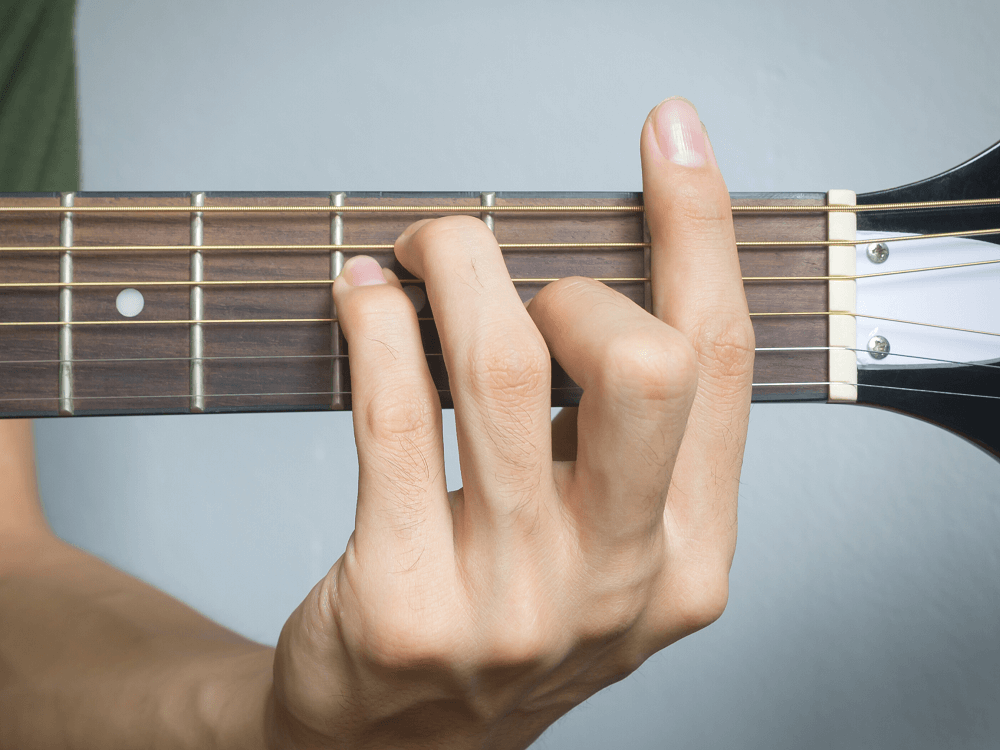
You can start off by learning some basic shapes and then move on to more complex progressions.
Once you’ve got the hang of them, try playing songs in different keys and see what kinds of sounds you can create.
By learning to play barre chords, you’ll achieve a whole new level of guitar playing.
For example, you’ll be able to play songs in any key and move around the fretboard more easily, giving you more freedom when it comes to improvisation.
8. Having good timing sense
Having a good sense of timing is essential for any musician, and the same goes for guitarists.
This is among the most important skills to master if you want to become a great guitarist.
It essentially means being able to stay in time with the music, which can be tricky when playing complicated riffs or solos.
The best way to practice timing is to play along with a metronome or jam tracks.
This will help you develop a better internal rhythm, as well as get used to playing with other musicians.
Once you’ve got the hang of it, try playing more complicated pieces and see how your timing improves.
In any setting, having good timing is essential for playing tight and sounding professional.
So make sure you’re dedicating time to practicing your timing if you want to become a great guitarist!
9. Knowing how to improvise
Improvisation is an important skill for any guitarist, as it allows them to be creative and explore new musical ideas.
It’s a great way to practice and hone your skills, as it encourages you to think outside the box and come up with unique melodies and riffs.
To get started, try practicing over basic chord progressions or jam tracks in different keys.
Focus on playing around with different scales and arpeggios, and don’t be afraid to make mistakes.
The more you practice, the better you’ll get at improvising.
You can also try jamming with other musicians or recording your improvisations so that you can listen back and analyze your playing.
By doing this, you’ll be able to identify any weak spots and work on them.
10. Know how to play with dynamics
Playing with dynamics is another important aspect of guitar playing and a crucial skill for any musician.
It essentially means being able to control your volume and tone so that you can create different moods in a song or solo.
This might involve anything from playing softly during intimate passages to cranking up the volume during big solos or riffs.
The best way to practice this is to record yourself playing different styles and then listen back to the recordings.
Listen carefully and see how you can use volume and tone to create interest or emphasize certain parts of a song.
Once you’ve got the hang of it, you’ll be able to add a whole new dimension to your playing!
Having good dynamics will help you stand out as a guitarist and make your playing more captivating.
11. Can play with other muscians
Playing with other musicians is an important skill for any guitarist.
Not only does it help you learn from each other, but it also gives you a chance to develop your improvisational skills.
When playing with others, focus on being in time and staying in tune with the music.

Listen carefully to the other musicians and make sure that you’re playing together as a unit.
Try to avoid stepping on each other’s toes and be aware of what the other musicians are playing.
You can also try jamming over different styles, such as jazz or blues, which will help you develop your improvisational chops.
In addition, working with others will help you learn how to play in time and with good dynamics.
12. Have curiosty and open mind
Having an open mind is essential for any musician, especially guitarists.
You need to be constantly curious about music and exploring new sounds since this is what drives creativity.
Listen to different styles of music and learn from them – even if it’s something that you don’t typically play.
Challenge yourself to try different techniques or play in an unfamiliar genre.
This will help you develop a better understanding of music, as well as broaden your horizons.
It’s also good practice to keep up with the latest trends in guitar playing, as this will help you stay ahead of the game.
By being curious and open-minded, you’ll be able to constantly refine your skills and become someone who stands out from the crowd.
13. Having good posture
Having good posture when playing the guitar is essential for many reasons.
Not only will it help you play more comfortably, but it’s also important for avoiding injury and strain.
Stand up straight with your feet slightly apart and make sure that your back is in a neutral position.
You should avoid slouching or leaning forward, as this can cause tension in the shoulders and neck.
Sit down if you’re playing a seated guitar, and make sure that your back is straight and your feet are flat on the floor.
Your arm should be comfortably placed so that you can move your fingers freely.
On top of that, you should also make sure that you’re not holding the guitar too tightly, as this can cause unnecessary tension.
Remember to take regular breaks while playing and stretch your arms and wrists periodically.
Good posture will help you play more easily and prevent any potential injuries or discomfort, which obviously isn’t ideal when you’re trying to enjoy music.
14. Knowing as many techniques as possible
Something that all guitarists should strive for is to know as many techniques as possible.
The more techniques you know, the more options you will have when playing a song or solo.
Knowing different techniques can help you create unique and interesting sounds that you may not have been able to achieve without them.
When you’re learning to play the guitar, it is important to focus on the basics.
Once you have these down, start exploring different techniques like fingerpicking, tapping, and slides.
Learning new techniques can be difficult at first, but with practice and dedication you will eventually be able to master them.
In addition to helping you create interesting sounds, techniques can also be used to make a song or solo more dynamic.
15. Be organized and consistent
Organization and consistency are important for any musician, especially guitarists.
Make sure that you’re practicing regularly and setting goals for yourself to improve your skills.
Keep track of the songs or solos that you’ve learned so far so that you can measure your progress over time.
You should also organize your practice sessions so that you’re focusing on specific areas and techniques.
By being organized and consistent, you’ll be able to make steady progress and eventually reach your goals no matter how big they may be.
Organization and consistency are essential for any aspiring guitarist, so make sure you keep them in mind when practicing.
Conclusion
Learning to play the guitar is a long and difficult process, but it doesn’t have to be overwhelming.
You can eventually become an accomplished guitarist by understanding some basic music theory and guitar technique concepts and staying motivated and dedicated to practicing regularly.
Remember to enjoy yourself along the way, be bold and ask for help if needed.
With patience, dedication, and some hard work, you will be strumming the guitar like a pro in no time!
Enjoy the journey and good luck on your musical adventure!

More than 10 years of experience playing and writing about guitars! When not writing, I can be found strumming away some Johnny Cash tunes. Favorite all time guitar is the Gibson Les Paul. #TeamGibson

